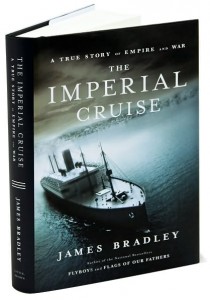Brief notes on two books I have read recently:
GAME CHANGE:
Obama and the Clintons, McCain and Palin, and the Race of a Lifetime
John Heilemann & Mark Halperin
Harper, 2010
My Rating: **
I’m a political junkie. Books about politics, campaigns, and presidents fascinate me – probably because my father was a city councilman for eight years and I grew up seeing political campaigns from the inside.
Game Change tells the story of the 2008 presidential campaign by shining light on the candidates and their strategies. There are clear winners and losers in this book (at least in how the candidates are covered). John and Elizabeth Edwards are politically finished. Obama is clearly the hero, always portrayed as above the fray and out of the mud. McCain’s temper, Hillary’s feelings of inadequacy, and Palin’s battles with the McCain staff – all the juicy details are here.
The problem with this book is that it remains unsubstantiated. There are no footnotes, so the accounts quickly degenerate into political gossip. If half of what is said about these current leaders is true, I cannot help but be doubly thankful that my hope is not in Washington or in any elected official. (Readers beware: these politicians cuss. A lot.)
THE IMPERIAL CRUISE:
A Secret History of Empire and War
 James Bradley
James Bradley
Little, Brown and Company, 2009
My Rating: *** 1/2
If you want to maintain a rosy-eyed view of American origins and expansion, I recommend that you skip this book. Bradley’s account of the American journey into the Philippines exposes the dark side of American “manifest destiny.” He also documents the idea of white Teutonic racial superiority, a mindset adopted by Theodore Roosevelt and a good number of Americans a hundred years ago. (Some of the cartoons and advertising are chillingly racist.)
My problem with this book is that, while Bradley complicates our understanding of American history by exposing the violence of our expansion, he does not complicate the picture quite enough. The Hawaiians, Filipinos and Japanese are portrayed as idyllic and serene before the onslaught of American visitors. We corrupted the natives and destroyed their peaceful existence.
In other words, sin and destruction began with America and then spread to the rest of the world. But a closer look at Japanese and Filipino history tells another story. Bradley clearly sees the pervasive influence of American sinfulness, but unfortunately he does not extend that sinfulness to the people we subjugated. It’s as if his spectacles are only near-sighted but not far-sighted.
Another problem here is that Bradley too often holds together “White” and “Christian” in a way that condemns all missionary activity as inherently imperialistic. He quotes from a Chinese man complaining that while American missionaries preach love in China, the American government persecutes Chinese immigrants. But instead of seeing such a statement as vindicating missionary work by women like Lottie Moon (who adapted to China’s way of life rather than convert the Chinese to American-style freedom), Bradley continues to perpetuate the myth that all missionaries were imperialistic and money-hungry.


















